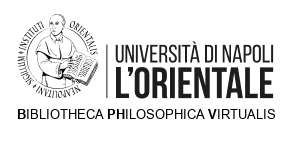Commentaire sur l'évangile de Jean / Jean Scot, introduction, texte critique, traduction et notes de Edouard Jeauneau, Cerf, Paris 1972
Il commento dell'Eriugena al vangelo di Giovanni è di grande interesse sia per gli studiosi di esegesi biblica sia per gli storici della filosofia e i filologi che cercano di riscostruire le fonti del pensiero medievale.
Di questo commentario possediamo soltanto un manoscritto conservato a Laon (Bibliothèque municipale, ms 81) ed edito da Edouard Jeauneau, il quale pone in evidenza la questione degli autografi eriugeriani, confrontando le diverse soluzioni e tenendo conto delle probabili correzioni e delle aggiunte dei copisti.
Se l'attribuzione al filosofo irlandese sembra certa, più problematico è invece il codice. Infatti esso presenta delle lacune: il commento si interrompe a IV, 14, probabilmente a causa della morte dell'autore e, tuttavia, non mancano riflessioni su VI, 5-14.
Il monaco francese sottolinea infine come l'Eriugena abbia proposto non soltanto una parafrasi dei brani evangelici, ma anche delle puntuali ossevazioni grammaticali e delle precise interpretazioni anagogiche.
------
Eriugena's comment on the Gospel of John is of great interest to scholars of Biblical exegesis and to historians of philosophy and philologists who try to reconstruct the sources of medieval thought.
We have only a manuscript of this commentary which is preserved in Laon (Bibliothèque Municipal, ms 81) and edited by Edouard Jeauneau, who emphasizes the issue of Eriugenian autographs comparing the different solutions and reckoning with the probable corrections and copyists' additions.
If the attribution to the Irish philosopher seems certain, the code is more problematic. In fact, it has some gaps: the commentary stops in IV, 14, probably due to the death of the author, but there are reflections of VI, 5-14.
The French monk underlines that Eriugena not only proposed a paraphrase of the Gospel passages, but also meticulous grammatical observations and precise anagogical interpretations.
Edouard Jeauneau
Edouard Jeauneau è stato un monaco e uno studioso di filosofia della natura nel Medioevo, oltre che di esegesi biblica.
Ha curato l'edizione critica del Periphyseon e di altri commentari di Giovanni Eriugena (Turnhout 2007), quella del Commento al Timeo di Guglielmo di Conches e ha scritto numerosi articoli e saggi riguardanti l'eriugenismo e il rapporto tra scienza, filosofia e religione in epoca medievale.
------
Edouard Jeauneau was a monk and a scholar of medieval natural philosophy, as well as of biblical exegesis.
He edited the critical edition of the Periphyseon and other commentaries of John Eriugena (Turnhout 2007) and of the Commentary on the Timaeus of William of Conches, and he wrote numerous articles and essays about the eriugenism and the relationship between science, philosophy and religion in the Middle Ages.
Giovanni (Scoto) Eriugena - John (Scot) Eriugena
Giovanni (Scoto) Eriugena (secolo IX) è stato teologo e filosofo, maestro della "Schola Palatina" di Parigi. Ha tradotto in latino il "corpus" di scritti dello pseudo-Dionigi, alcune opere di Massimo il Confessore, di Gregorio di Nissa e di Epifanio.
Uno dei capisaldi del suo pensiero è la nozione di natura, divisa concettualmente in quattro specie: natura che crea e non è creata (Dio), natura che crea ed è creata (le idee presenti in Dio, coeterne, il Logos), natura che non crea ed è creata (il mondo e l'uomo), la natura che non crea e non è creata (il ritorno alle cause primordiali in senso figurato).
------
John (Scot) Eriugena (ninth century) was a theologian and philosopher, master of the "Schola Palatina" in Paris. He translated the "corpus" of the writings of Pseudo-Dionysius into Latin, and some books of Maximus the Confessor, Gregory of Nyssa and Epiphanius.
One of the cornerstones of his thought is the notion of nature, conceptually divided into four species: nature which creates and is not created (God), nature which creates and is created (the ideas present in God, co-eternal, the Logos), which does not create and is created (the world and man), which does not create and is not created (the return to the primordial causes figuratively).
Shelfmark: F.L. 0302


